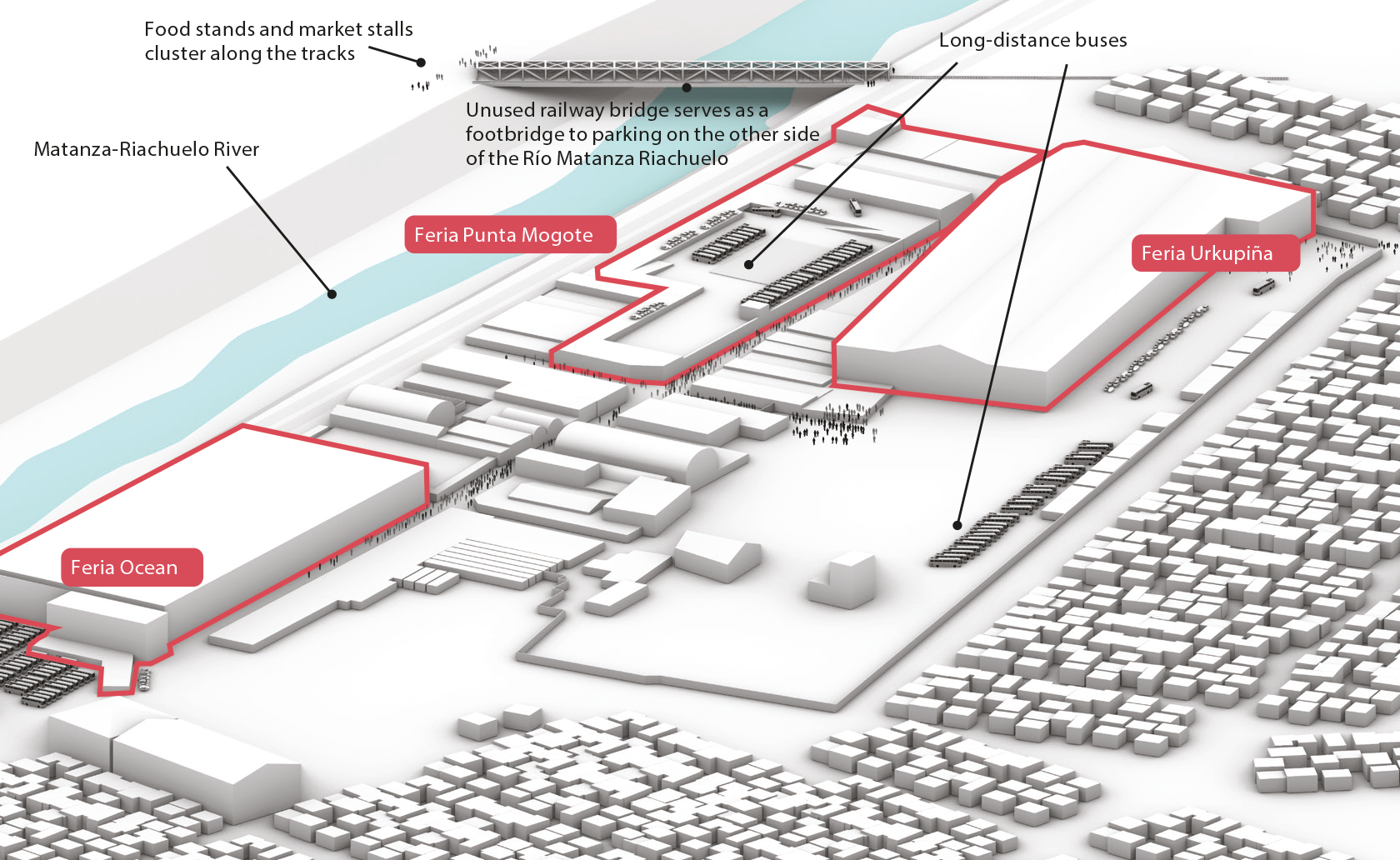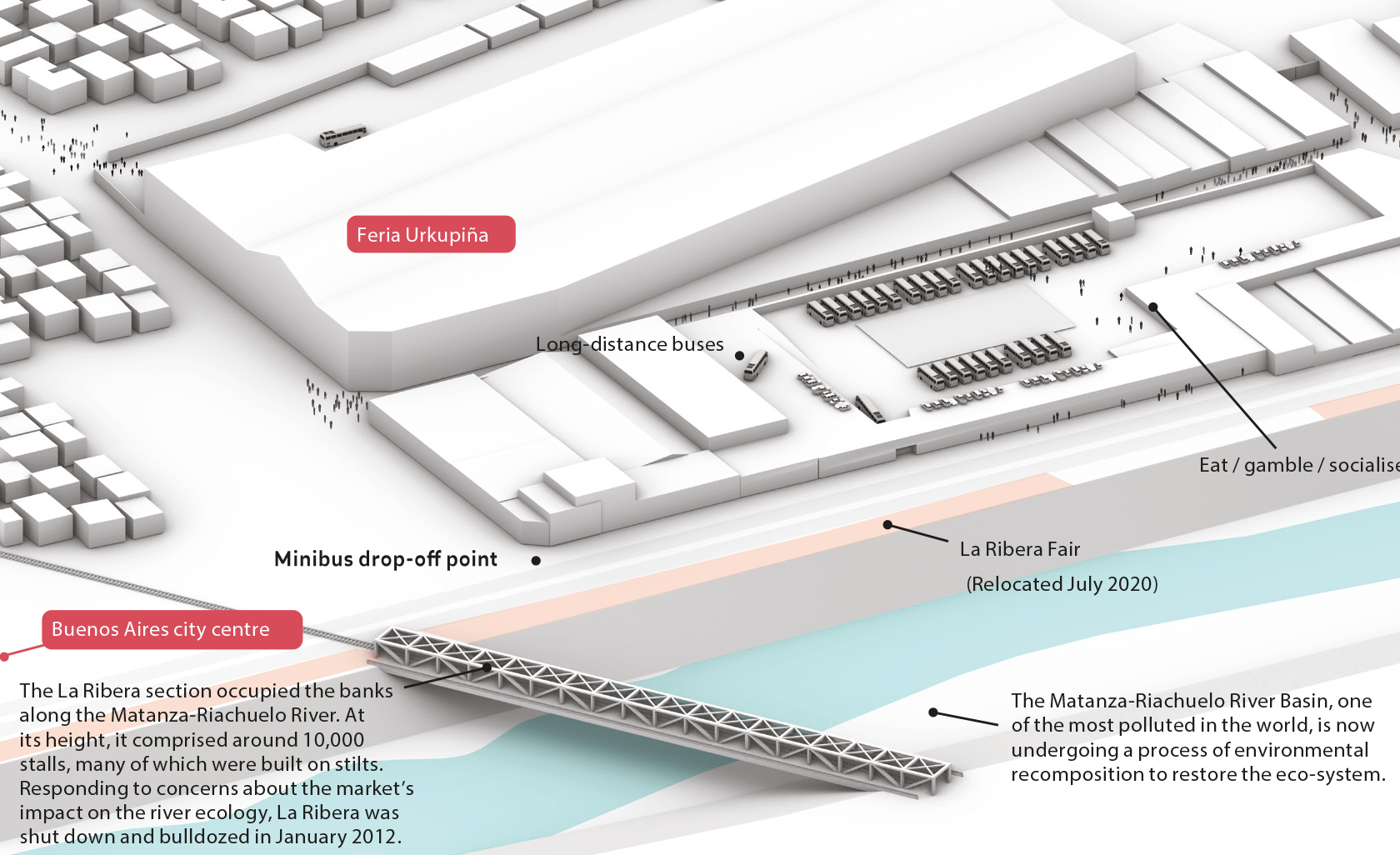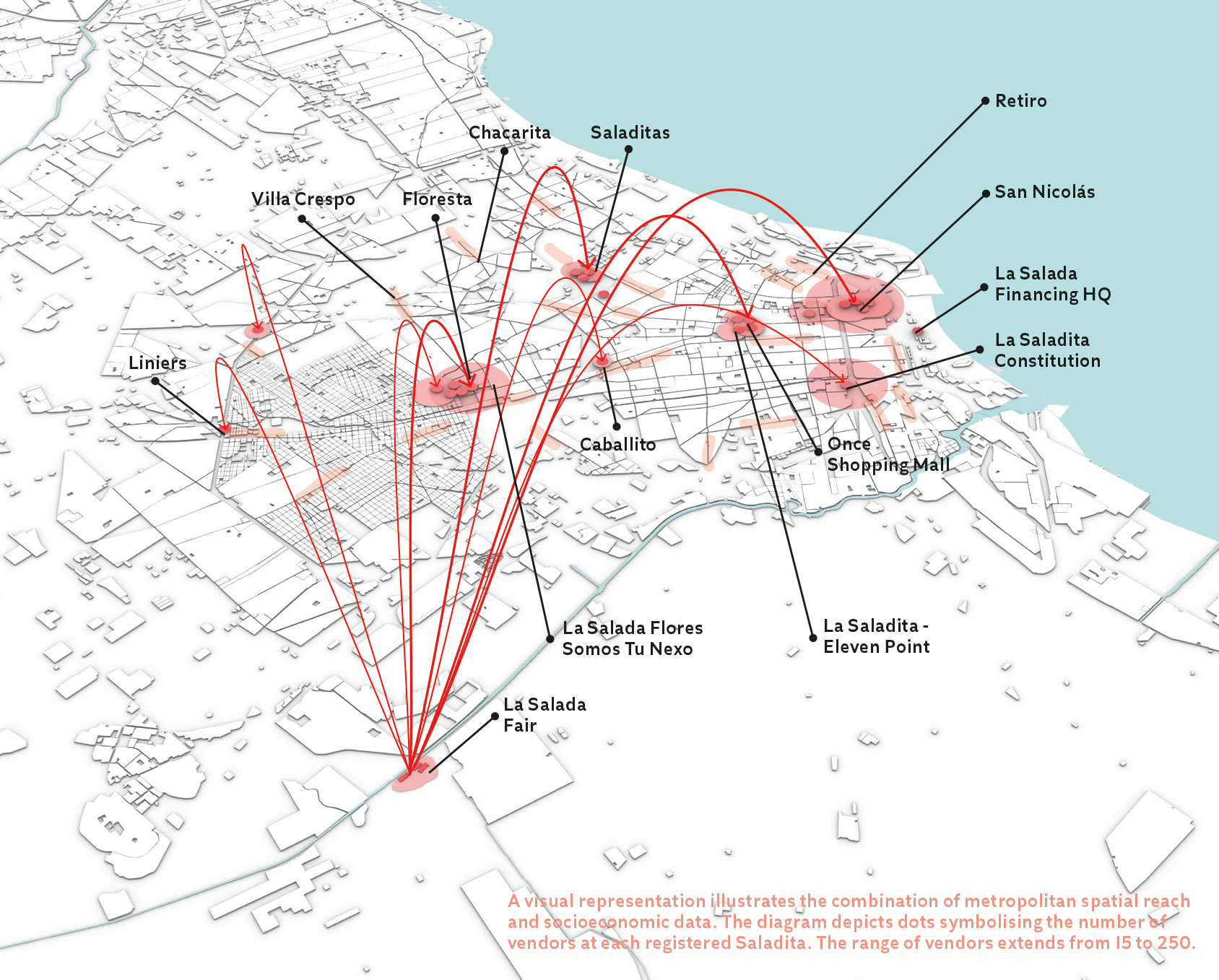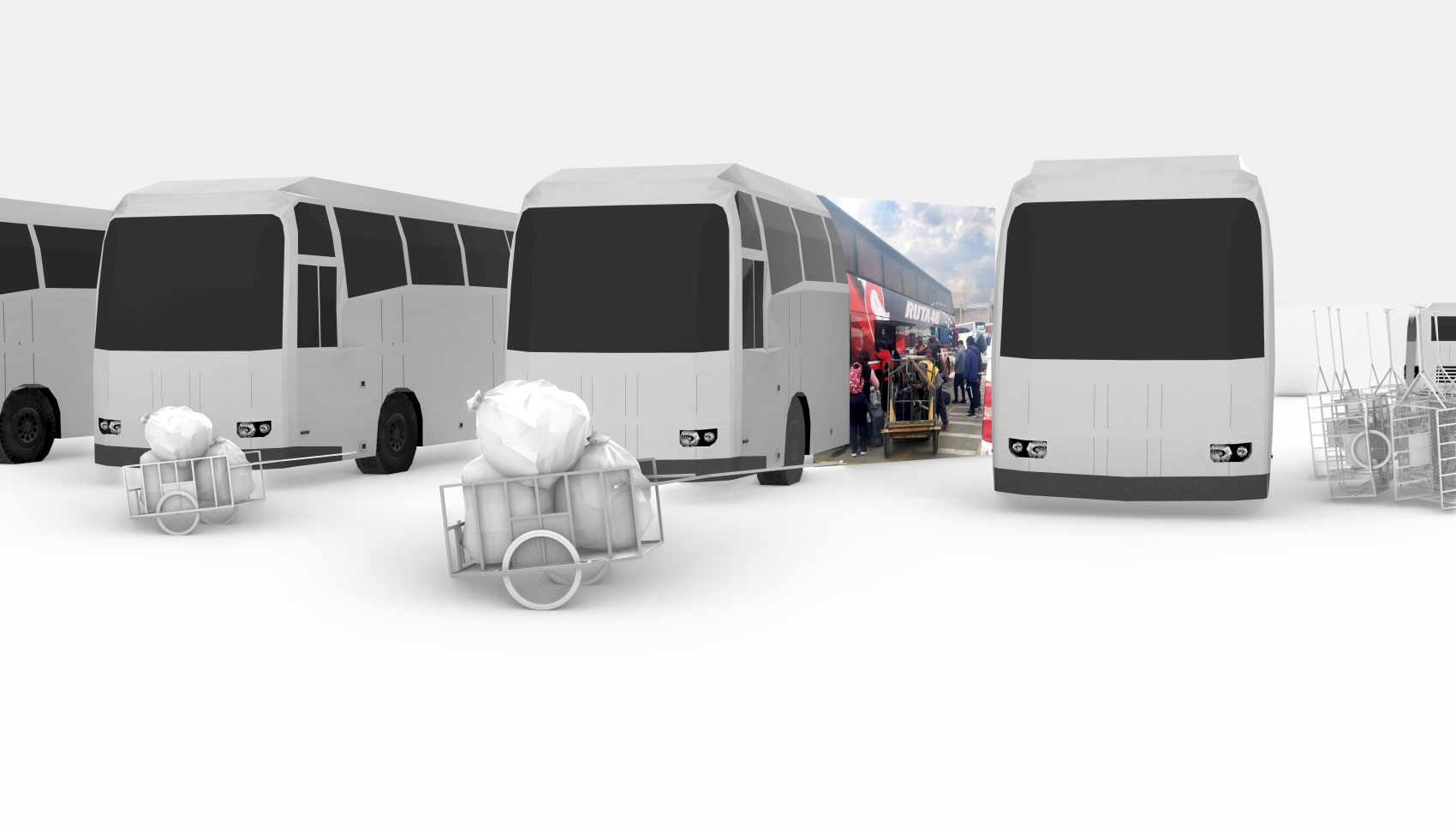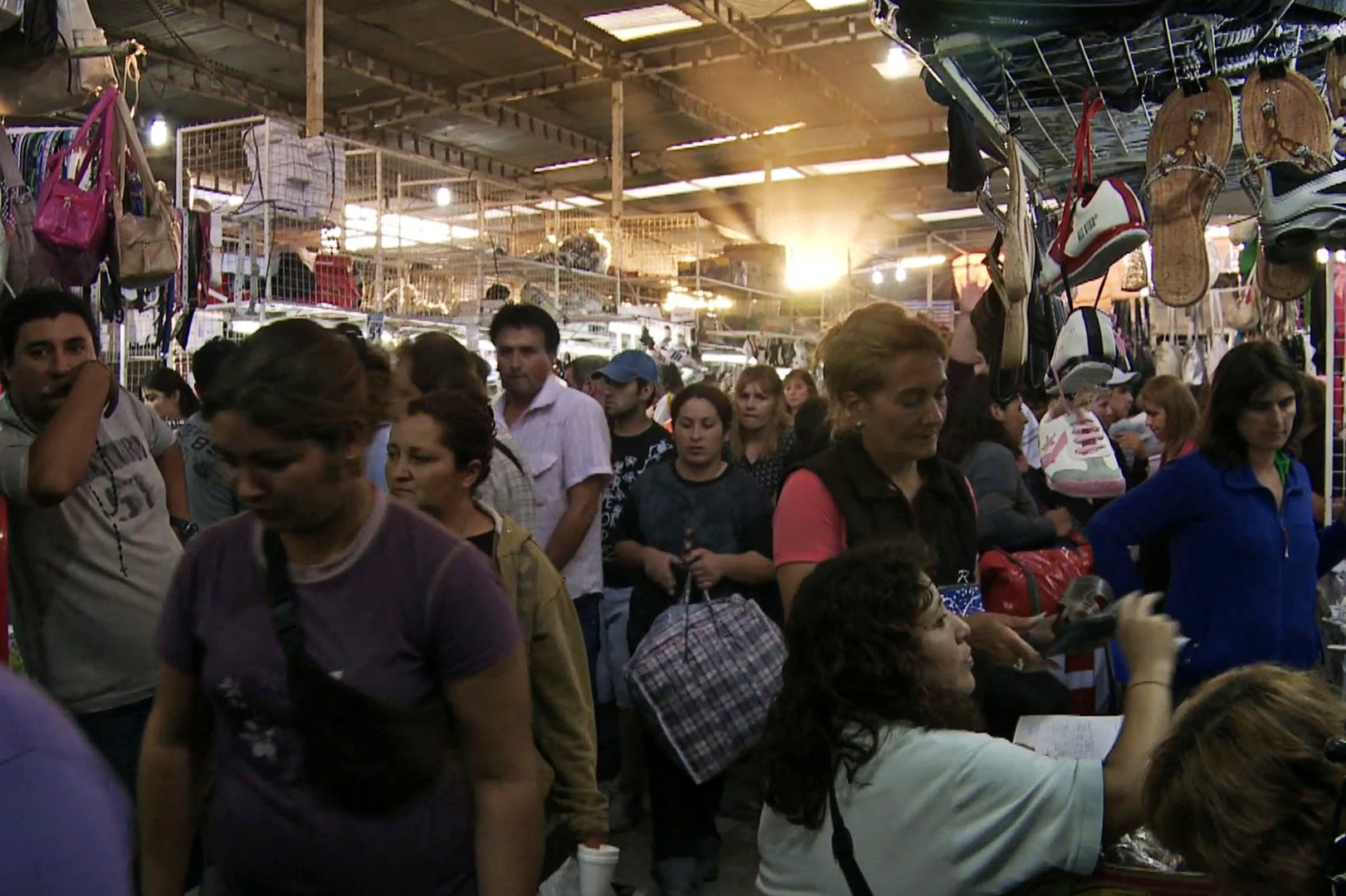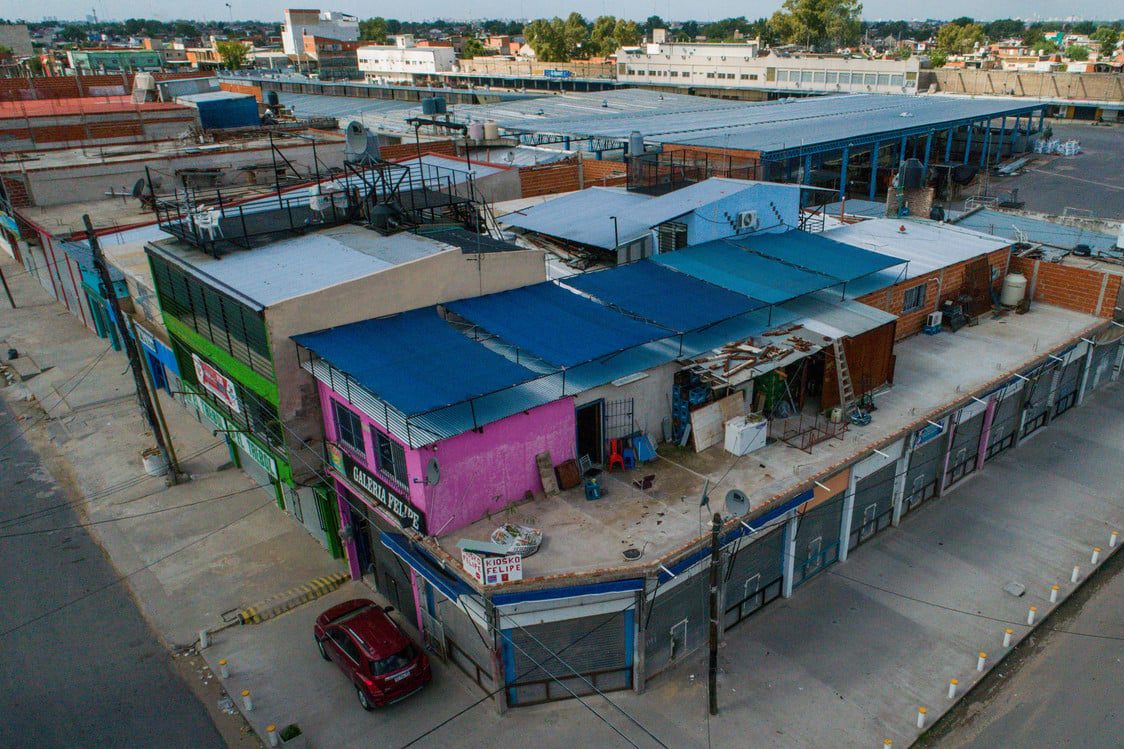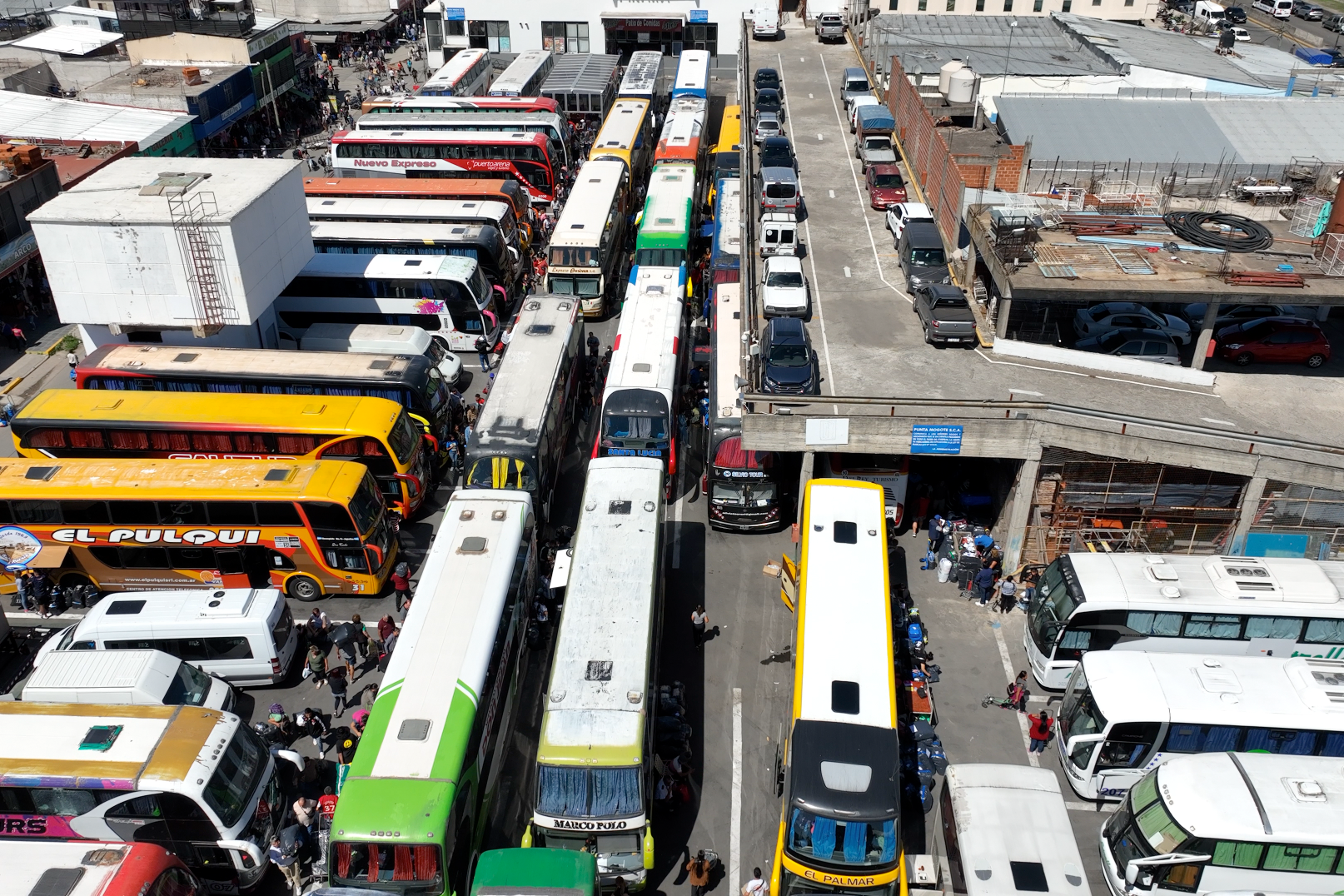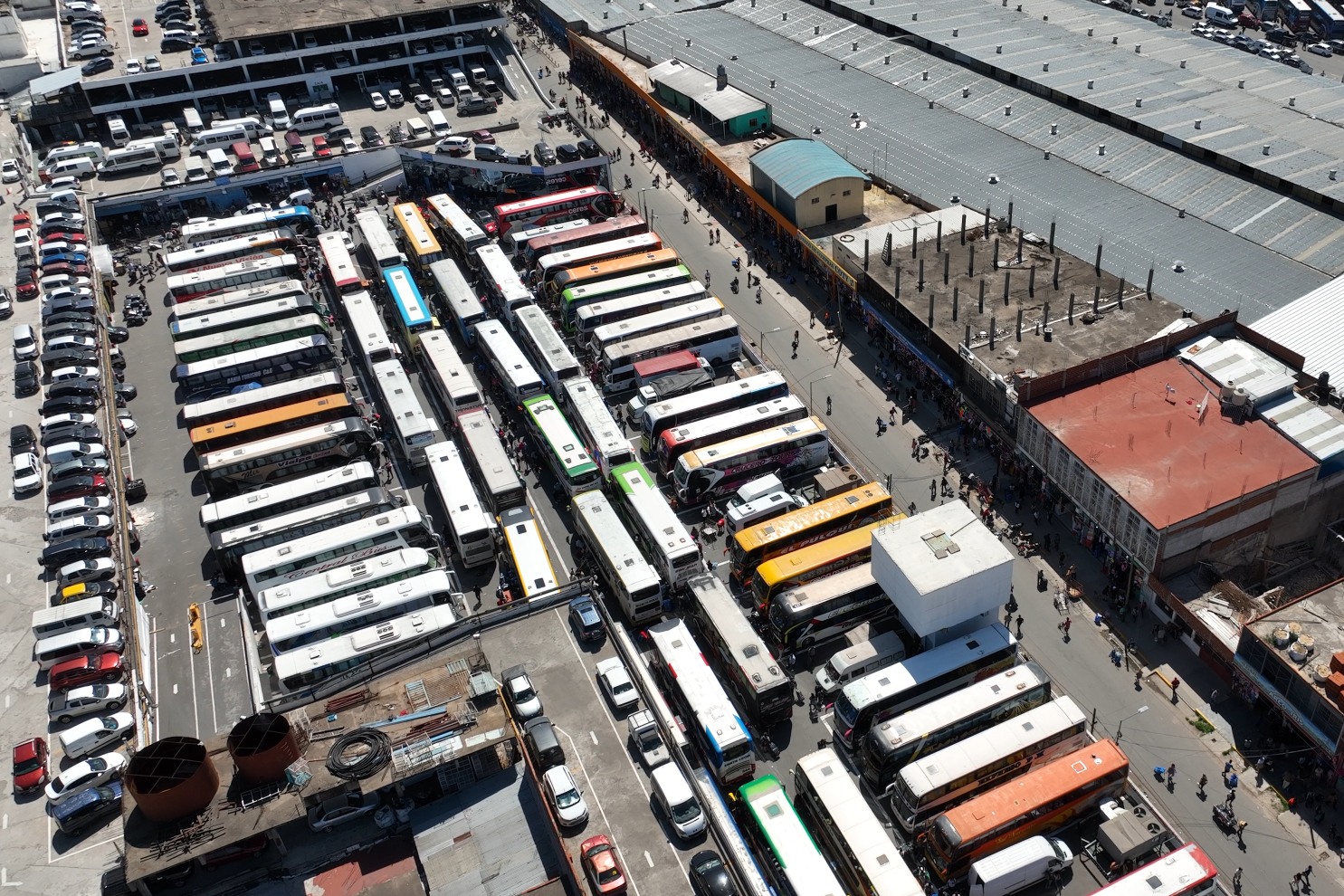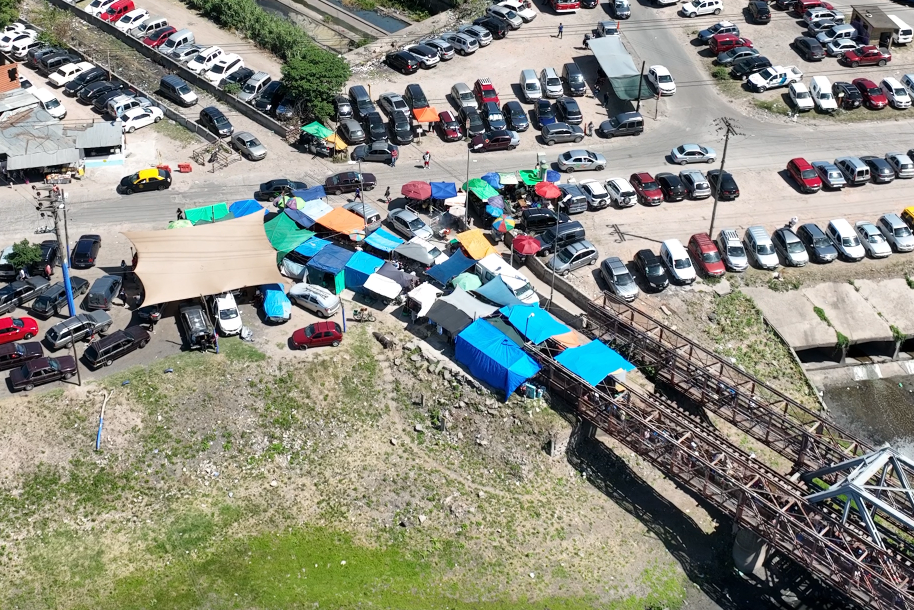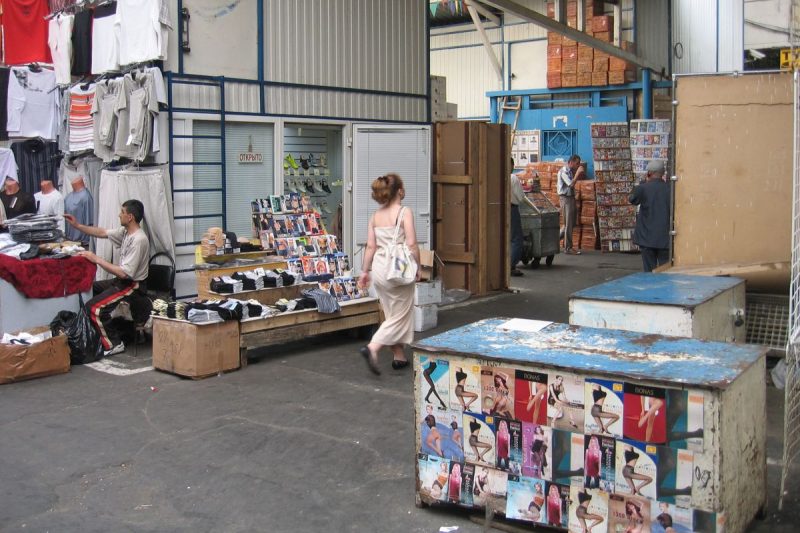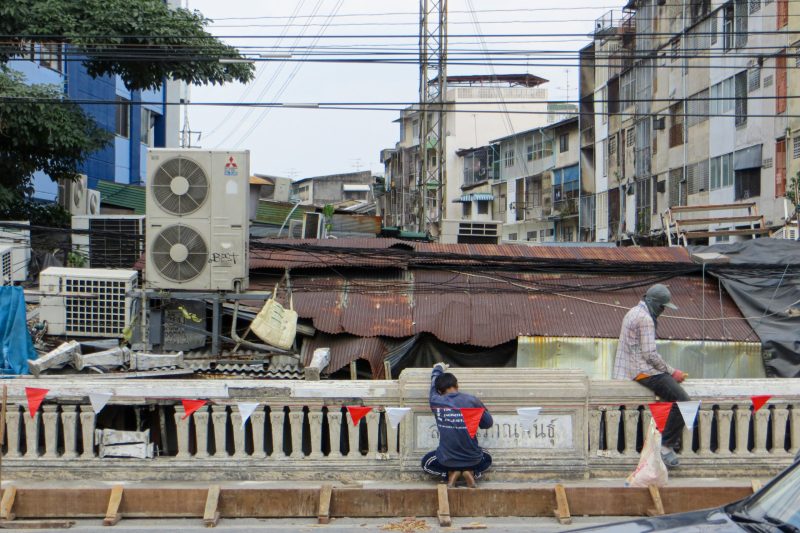- Forced Closure
- FWF
- 2018-2023
- Incorporating Informality
Fallstudie: La Salada Fair
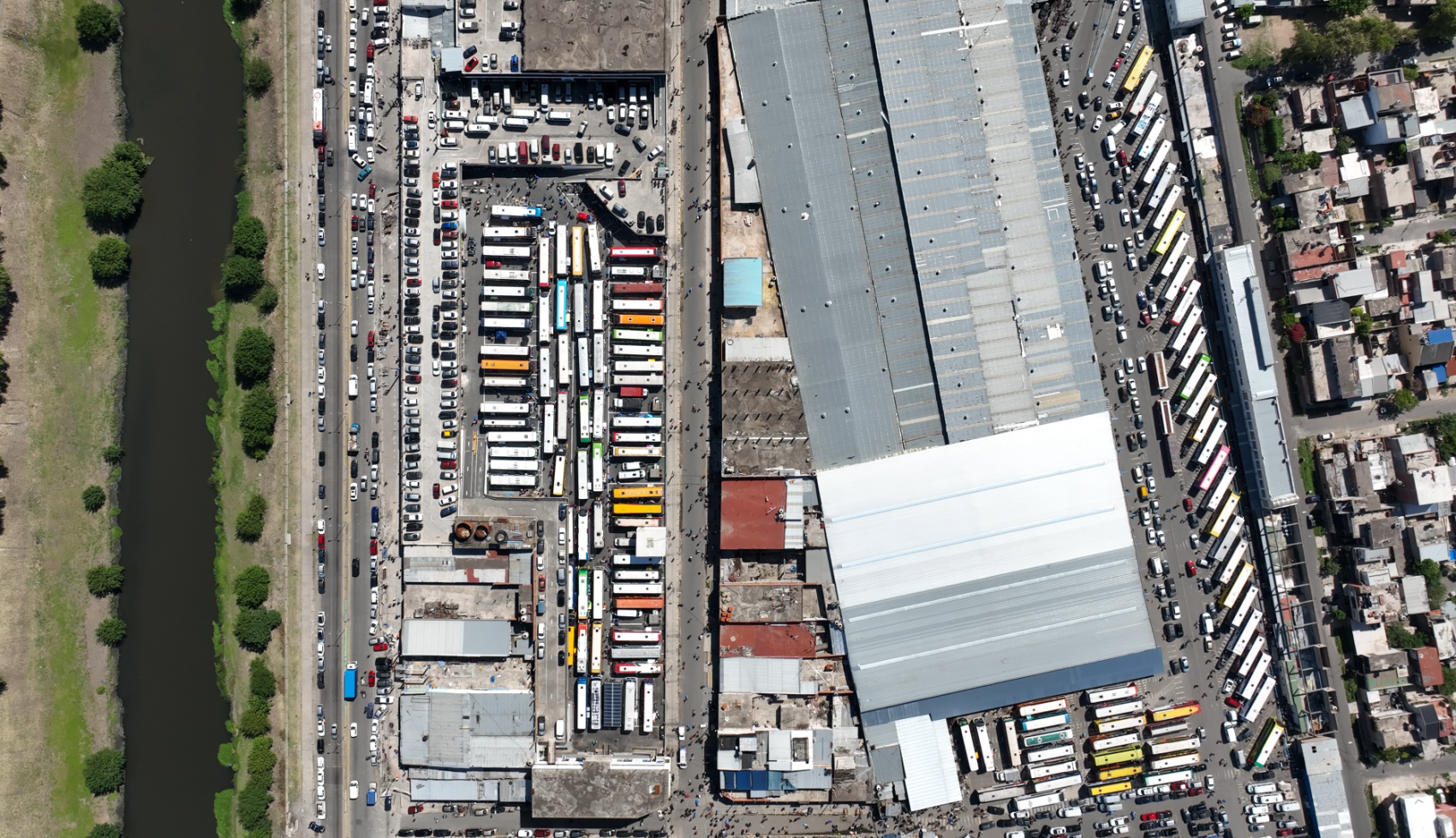
La Salada, Buenos Aires, 2022
PARAFORMALITY IN BUENOS AIRES
On the outskirts of Buenos Aires, Argentina lies what one can call the La Salada phenomenon. In the processes of rectifying the Matanza-Riachuelo basin in the early twentieth century, saltwater pools arose leading to the formation of beach resorts in the 1940s. On this land, occupied by La Salada, food and clothing were continually sold, mainly coming from clandestine workshops located in the area.
The La Salada phenomenon can be understood on three interconnected scales formed through specific historical moments and a culturally situated political matrix. The fair is at the crossroads of three structured cirtcuits. The first is the ‘micro,’ which comprises extended family units of the popular classes that are consolidated in times of economic crisis and who work by combining the ‘subsistence’ or ‘reproduction’ economy with small-scale commercial enterprises. The second is an intermediate scale that implies the insertion of the fair in the human and non-human ecosystem of the Matanza-Riachuelo River basin, one of the most polluted in the world, now in the process of environmental recomposition, as well as the economic, social and political fabric of the Buenos Aires Metropolitan Area (AMBA, for its initials in Spanish).
The third is the macro, which relates to Latin America’s population and geography. On this scale, the fair’s organisers are articulated with the formal commercial networks, the local political agreements, and a regional level where the commercial network of the fair extends to numerous provinces of Argentina and some neighbouring countries’ cities.
Location(s):Buenos Aires, ARGENTINA
On-Site Collaborator:m7red
Visualisations: BILAL ALAMELOVRO KONCAR-GAMULINJOANNA ZABIELSKA
Photography: m7red
Results of this case study were published in:
The rise of the fair is a response from marginalised sectors to global capitalism’s integration process. But the experiment of forming an overseas commercial circuit between La Salada and Luanda, Angola, indicates a scale change: a local network of informal urban sectors can trade directly with a global instance. La Salada was born during the peak of Argentina’s neoliberal integration into the world and grew in strength with the progressive decline of that model. The 2001 financial crisis was economic and political, but it was, above all, systemic and constituted the event that provided the conditions for developing paraformal economic networks, such as la Salada.
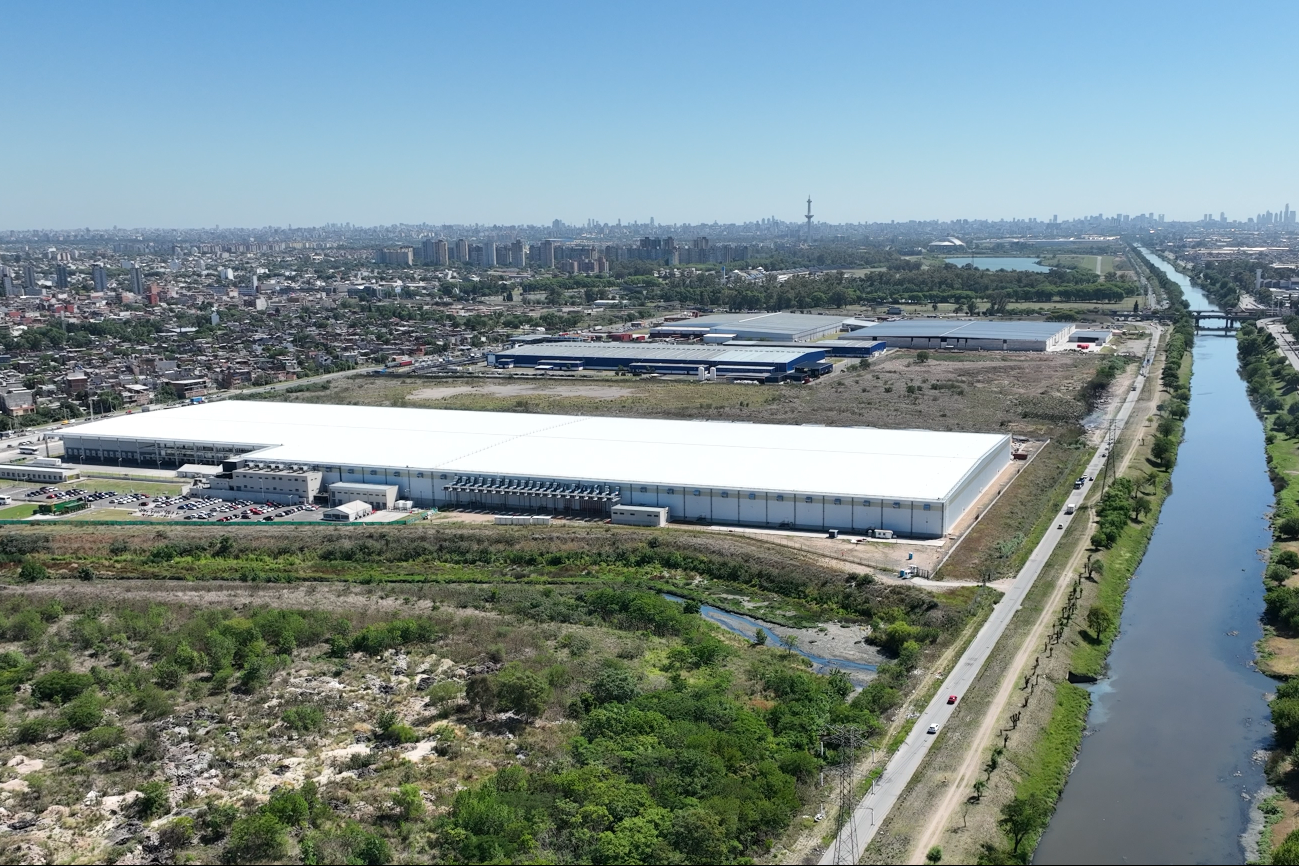
Mercado Libre with Buenos Aires city centre in the background, 2022
As a result of neoliberal policy formations aimed at capturing and reducing activities coined ‘the popular economy,’ the market was criminalised in 2017 and finally closed during the COVID-19 pandemic. Although the quarantine closures seemed definitive under these hostile conditions, the markets found new ways of production and of strengthening the paraformal economy, which made the La Salada Fair case not only a resilient phenomenon but also a benchmark for dynamic employment generation models emerging from the crisis.
CONTRIBUTOR(S)
m7red is an independent research group co-founded by Mauricio Corbalan and Pio Torroja in Buenos Aires in 2005.

